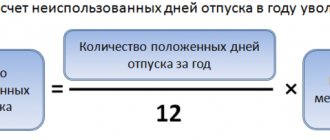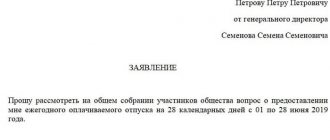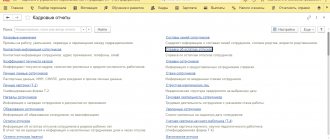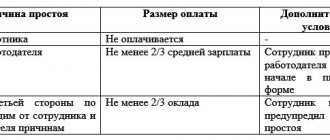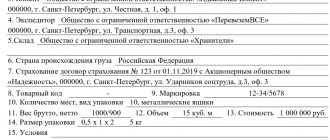Legislative norms
The conditions for granting, the nuances of registering leave for a hired employee are consistent with the provisions of Chapter. 19 TK. Before talking about the possibility of transferring vacation days to a new period, it is necessary to understand what the permissible duration of the transferred vacation is.
The main provision of the law obliges the administration to annually allow employees to take a 28-day vacation while maintaining their jobs and pay. In certain situations, additional days of vacation are mandatory with retention of wages:
- The employee is involved in hazardous production.
- The types of work performed take place in life- and health-threatening circumstances.
- Using irregular operating modes.
- Work in the Far North and other special territories.
Additional days can also be received by pregnant employees (based on Article 255 of the Labor Code), the need to care for a minor dependent (Article 256 of the Labor Code), and full-time students (Article 173).
Documentary grounds
The transfer of vacation to 2021 must be agreed upon with the following documents:
- Labor Code of the Russian Federation;
- collective agreement;
- individual labor agreement;
- internal regulations of the company.
If the enterprise has a trade union, all actions related to the provision or transfer of days of rest are also consistent with it. A decision on vacation can only be made in agreement with the employee himself. The law allows partial use of paid days , provided that one of the parts is 14 days or more.
Information on the procedure for using non-vacation days in the next period is provided in Art. 124 Labor Code of the Russian Federation.
Is transfer possible by law?
Within the framework of the provisions of Article 124, the law allows for the transfer of required vacation days subject to the following circumstances:
- Mutual consent of the administration and employee.
- There must be compelling reasons consistent with the law.
- Job responsibilities allow for the possibility of working without rest for a year (harmful or dangerous production, minor age of the employee).
Labor law prohibits the administration from refusing time off if the employee does not agree with the management’s opinion on this issue. It is also unacceptable to have no vacation for two years in a row.
Violation of these standards threatens a serious fine for the company.
Nuances of calculating and paying vacation pay when rescheduling vacation or part of it
Vacation pay is calculated based on the employee's average earnings.
When calculating and paying compensation, the following nuances are taken into account:
- The employee may initially receive compensation and then go on vacation.
- An employee must receive compensation 3 days before going on vacation.
- The specialist can return the money voluntarily.
- The refund can be recorded in the Order.
- Average earnings are “taken” for the year.
- If there was no earnings, then the previous period is taken into account. This may be if the employee was on maternity leave for up to 3 years.
- A citizen can go to work during vacation, ask for a transfer of days worked, but will not return compensation. It's his right.
We wrote more about calculating vacation pay - read our article here. In it you will find different formulas and calculation examples.
At the initiative of the employee
Sometimes the employee himself decides not to leave for an extended period, intending to subsequently use the accumulated days at his own discretion. It is important to correctly register the change in vacation time in order to retain the right to vacation next year.
Good reasons for postponing the vacation period include:
- The coincidence of rest time with a period of illness or serious injury is confirmed by a sick leave.
- Lack of due payment for the next vacation no later than 3 days before leaving (Article 136).
- the employee did not receive a notification from the administration 2 weeks before the start of the vacation;
- Fulfillment of duties to the state related to military registration, military training, testifying to law enforcement agencies, participation in court, including jury service.
- other situations established by the laws of the Russian Federation.
Drawing up an application
The main document that initiates the process of applying for leave or transferring it is an application from the employee.
In order to preserve accumulated paid days, a statement is written asking to take into account unused paid rest days in the next period.
The application is drawn up according to the sample, taking into account certain requirements for the execution of the document. Required document details include:
- The document is addressed to the competent official indicating his position, surname, and initials.
- It is necessary to indicate who the document comes from - last name, initials, position of the employee.
- The text of the application itself contains a request for a transfer with an exact indication from what period to what days.
- To confirm the validity of the transfer, indicate the reason and provide a link to a document that can confirm this fact.
- Signature and date of application are placed at the bottom.
Enclosed with the application are copies of documents confirming the grounds for transfer.
If the interests of the enterprise are not harmed, the administration decides to satisfy the employee’s request. If rescheduling would significantly disrupt the production process or otherwise result in losses, the request will be denied.
Transfer procedure
In all cases where the fact of postponing the vacation is agreed upon by both parties and does not require additional disputes, the following steps are taken:
Documented explanation of the reasons
The employee writes an application to postpone the vacation, which refers to certain circumstances.
If there are additional documentary justifications, they must also be attached to the application.
Example:
The employee enters into inheritance rights that require his presence on the basis of civil case No. ..., a notice of which he received. A copy of this notice is attached to the application.
You can download an example of such a statement here.
Memo from the immediate supervisor
The relationship between a boss and a subordinate proceeds in different ways, so you should call as an ally the manager under whom the person works most of the working time. This boss writes an arbitrary document asking to reschedule his subordinate’s vacation and indicates the reason (most often: “production necessity”).
Documenting
The above documents are reviewed by the manager, who, on their basis, signs the transfer application.
Transfer order
Based on the signed application, the HR department prepares a corresponding order, which is signed by both parties.
At the initiative of the employer
The administration may also initiate a postponement, subject to the following circumstances:
- paid vacation is postponed no later than a year;
- the procedure must be agreed upon with the employee;
- production necessity requires the presence of a person for a certain period of time, even if it falls on vacation days.
In order to arrange a transfer to a later period, the administration is obliged to notify the person in advance and obtain his consent.
Notification occurs in writing, indicating the reasons why going on vacation is not possible at the previously agreed time according to the schedule.
The matching algorithm looks like this:
- Notifying the employee in writing.
- Coordination.
- Issuance of the corresponding internal order.
- Changing information in the documentation for recording working hours.
After the administration postpones the employee’s vacation period, next year the person has the right to choose the vacation period at his own discretion, without the need to take into account the priority in the general schedule .
conclusions
Transferring the annual rest period to the next year is permitted. The initiative can come from the employee or the employer. An employee has the right to demand a transfer if his rights regarding the provision of rest and its payment are violated, or during the vacation period he becomes incapacitated or performs government duties.
In other cases, the issue is resolved by mutual agreement. Reasons such as “family circumstances”, “production necessity” are not mandatory. In each such case, the issue is resolved individually.
Compensation instead of vacation?
In some cases, vacation not taken can be compensated with money, however, this procedure is limited by legal norms.
A person is not entitled to receive compensation if the unused period does not exceed 28 days. This rule is based on a clear statement of the law - every employee has the right to paid leave every year and can exercise this right based on the provisions of the Labor Code.
In the following situations, compensation is still possible if it concerns:
- parts of additional leave exceeding 28 days;
- days accumulated since the previous year.
Thus, during the period of work, receiving money instead of the usual regular vacation is prohibited by law. The exception is cases of dismissal, when transferring the vacation to a new period is no longer possible.
Unused vacation upon dismissal
Despite the law obliging employees to go on paid leave, situations may arise where, at the time of dismissal, an employee has accumulated unused rights to subsequent vacations over several years.
Only in case of dismissal, the employee has the right to receive monetary compensation for the entire unused period. While the employee is on the payroll, such compensation for refusal to take leave for several years is not subject to payment.
If the employee continues to work, the unused portion can only be added to the new accumulated rest period in the following year.
If, upon dismissal, an employee is faced with a refusal to pay for the entire vacation period, the quitter must contact the labor inspectorate. In response to his request, an inspection will be scheduled. If it is discovered that a person has not taken vacation for a long period, the company will be held administratively liable with a fine of 50 thousand rubles and full repayment of the missed vacation with monetary compensation.
Dates and deadlines for rescheduling vacations - how many times per year is an employee’s vacation allowed to be rescheduled?
Let us note several important nuances regarding the dates and timing of vacation transfers.
Number of transfers
The Labor Code of the Russian Federation does not establish how many times per year an employee or employer can postpone vacation. Thus, it turns out that you can transfer your vacation several times .
Example:
Citizen Portnova must go on vacation from March 1 to March 28. It turned out that in the period until March 9 she was on sick leave. Having returned to work on March 10, she wrote a personal statement and asked to reschedule her vacation to another time. She did not indicate a time frame.
The accountant suggested that Portnova go on vacation from June 1 to June 28. This period suited her. She was on vacation when on June 11 her employer sent her on an urgent business trip. Portnova agreed, but wrote an application to postpone part of the remaining vacation.
Transfer period
Let us note one more nuance. Vacation cannot be transferred to the next year . It must be used within 12 months.
For example, if an employee must go on vacation from April 2018, then he must necessarily take the rest period from April 2021 to April 2021.
Transfer time
Vacation can be postponed for an indefinite period - but no more than 2 years. An employee has every right to choose when he needs to go on vacation.
Is it legal to postpone the holiday to next year?
The current legislative norms have long established the official procedure for modern employees to take their required vacations. Thus, in accordance with existing rules, every employee is required to take a well-deserved rest every year. The leaving procedure itself is carried out on the basis of the main document, namely, a vacation schedule drawn up in advance and approved by the employer. It is a kind of schedule in which information about absolutely every employee working in a particular organization is entered. In the future, all employees will be required to go on vacation based on the schedule in force at the institution.
However, there are some exceptions to the above rules. In particular, there are certain circumstances under which the employer will be obliged to decide to postpone the vacation period of a particular employee. Such circumstances include the following:
- An employee going on sick leave. As you know, absolutely every employee has this right. To initiate such a procedure, he will need to visit a medical institution and draw up the main document there - a sick leave. It includes all the important information about the employee’s current condition, any ailments he has, etc. If the employee’s period of sick leave falls during a previously planned vacation, the vacation itself must be rescheduled.
- Involving an employee in the performance of various government duties, which freed him from his main work activity for a certain period of time. In this case, the employer must also make a decision regarding making the necessary changes to the current vacation schedule.
- Violation by the employer of the established rules regarding advance notification of the employee about the imminent start of the vacation period. In accordance with current regulations, it is the manager who is required to monitor the vacation schedules of all employees and regularly prepare appropriate alerts for employees. Moreover, such notifications must be prepared in writing. Such a letter must be delivered to the subordinate no later than 14 calendar days before the immediate start of the vacation period. In case of violation of this rule, the employee will have every reason to present demands to his employer regarding the transfer of vacation to another time.
- Violation by the employer of its own obligations regarding the timely accrual of vacation pay. The current rules establish that every director is obliged to pay vacation pay to his subordinates. This must be done at least three days before the immediate start of the rest period. If the employee, in turn, did not receive the money due to him on time, it means that he will be able to legally apply to go on vacation at another time.
- Providing a part-time worker with leave that does not coincide with the rest period at the main place of work. A part-time worker belongs to a special category of employees who can be employed in two or more places on an official basis. In order for a subordinate to be able to fully relax and restore his own strength, leave must be granted to him simultaneously at all places of his employment.
The main reasons for postponing planned vacations
There are 3 groups of reasons according to which changes in vacation dates (fixed in the official schedule) are possible:
- An employee makes a request to change the vacation schedule. In this case, the employer may have the right to provide leave at the employee’s request or to refuse it.
- The employer is the initiator of changes to the vacation schedule. In order for the transfer of leave to take place, the worker must give his consent.
- The employer, at the request of the employee, is obliged to postpone vacation dates (or extend the planned vacation), while the terms of the vacation period are subject to agreement.
Rules for drawing up an application
There are no standardized forms for writing to an employer with a request to change the scheduled dates.
The application is written in legible handwriting or printed using modern office equipment, certified with a personal signature. You should adhere to the requirements for a business letter.
In the upper right part of the sheet a “header” of the document is drawn up, indicating:
- to whom they are addressing - the position of the first manager, last name, initials of the first name, patronymic;
- information about the applicant - position held, place of work, last name, first name, patronymic.
Having titled the appeal, move from a new line to the text part, where:
- specify the desired period of time change for guaranteed rest;
- provide justification for the valid reasons for their request.
If there are documents directly related to the subject of the application, they are submitted along with the written request, listed in the appendix.
At the end they put a date and signature.

